With the evolution of Chat GPT, AI-Powered photo, video and voice generators and so on, it is high time to figure out how to use artificial intelligence efficiently to increase personal efficiency and adapt to the new trend of modernization. Increasing one’s productivity in today’s information era requires mastering the use of Artificial Intelligence (AI). Artificial intelligence (AI) has many uses, from automating mundane activities to analysing data and making suggestions based on each individual’s preferences. When people learn how to properly use AI, they may improve their efficiency, save time, and accomplish more. In this piece, we’ll look at 10 real-world applications of AI that might help you work smarter.
Table of Contents
1. Automate Repetitive Tasks
The capacity to automate dull and time-consuming jobs is one of AI’s greatest strengths. Virtual assistants, chatbots, and Robotic Process Automation (RPA) are just a few examples of AI-powered technologies and software that are freeing people up to concentrate on higher-order, strategic, and creative tasks. You can save time and be more productive by having AI handle routine activities for you.
A virtual assistant may help with things like organising your schedule and answering your emails. Chatbots may handle simple customer service questions, allowing human agents to focus on more complicated problems. Robotic process automation (RPA) may speed up data processing by eliminating human tasks like data input and report generation.
2. Intelligent Data Analysis By AI
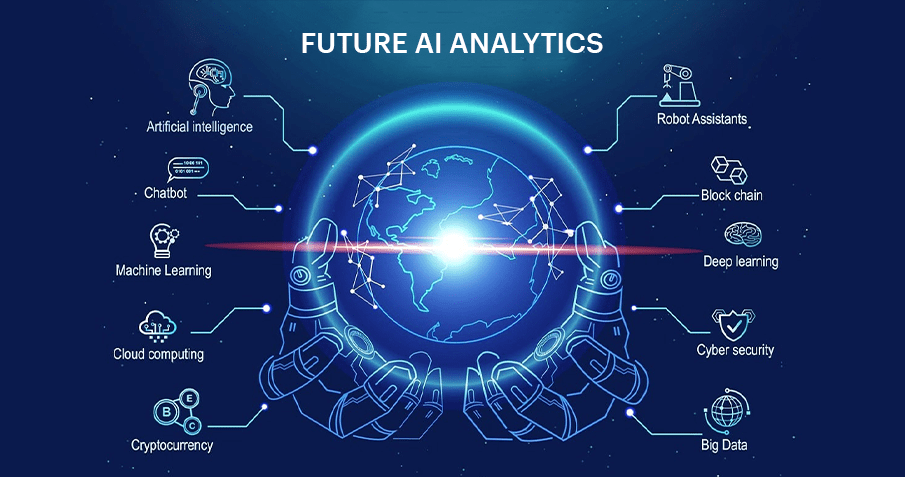
Artificial intelligence (AI) is particularly well-suited to the task of analysing large datasets in a short period of time and producing actionable insights. Individuals may learn more and find previously unknown patterns or trends in their data by using AI algorithms and machine learning approaches.
Decisions can be made faster and more accurately with the aid of AI-powered data analysis tools, whether you’re working with consumer data, market research, or financial reports. These resources help establish connections, forecast results, and provide useful advice. Individuals may improve efficiency, discover new avenues for growth, and reach their full potential by using AI-powered data analysis.
3. Personalized Recommendations
Artificial intelligence algorithms are skilled at learning about individual users’ tastes and using that knowledge to tailor their suggestions accordingly. When working with massive volumes of data or material, this capacity becomes invaluable. Recommendation systems enabled by artificial intelligence (AI) may make your search for content, goods, and services much more efficient.
To provide users with suggestions tailored to their interests and needs, e-commerce companies, for instance, utilise AI to analyse user behaviour, purchase history, and similar characteristics. Articles and videos are recommended on content platforms using AI algorithms that take into account the user’s preferences and past interactions with the site. Individuals may save time and energy by following AI-generated suggestions for relevant material.
4. Enhanced Research and Information Gathering
AI has the potential to dramatically improve both the quality and quantity of research and data collection. In the past, this work required tediously combing through copious amounts of paperwork, publications, and other sources. Search engines, document summarising tools, and data extraction techniques driven by artificial intelligence allow researchers to save time and effort.
AI-driven search engines, for instance, may better grasp user intent and context to provide appropriate results. In order to help people rapidly understand complex documents, document summarising software may analyse and extract crucial information. Rather than spending hours manually extracting data from massive databases, data extraction algorithms can do it for you automatically.
Individuals’ decision-making and output may be enhanced by using AI to streamline the research and information-collecting processes.
5. Streamlined Communication
Our ability to communicate and engage is being revolutionised by AI-powered communication technologies. Time spent on administrative activities may be reduced with the help of virtual assistants and chatbots, who can answer frequently asked questions, offer information, and even carry out basic tasks.
Meetings may be scheduled, reminders can be issued, and simple queries answered by a virtual assistant, freeing up time for more important work. By answering frequently asked questions and leading users step-by-step through different procedures, chatbots may provide quick help for customers. Individuals may save time and effort by adopting AI-powered communication solutions that allow them to centralise and prioritise critical talks.
6. Smart Time Management
Effective time management is crucial for success in all areas of life. Smart scheduling, work prioritisation, and time allocation are all made easier with the help of AI-powered time management tools and apps.
These programmes examine user habits and environmental influences to provide effective time-management strategies. Time-consuming tasks may be identified, tracked, and reminders made to keep people on track. Individuals may improve productivity, strike a better work-life balance, and make the most of their time by using AI for time management.
7. Intelligent Email Management
Overwhelming amounts of email are a widespread problem that may hinder individual productivity. Artificial intelligence (AI) may be a great help when it comes to organising and prioritising one’s inbox.
Email filters and prioritisation systems driven by AI can automatically sift spam, prioritise inboxes, and flag time-sensitive communications. Tools like this may adapt to their users by analysing their behaviours, preferences, and interactions in order to improve their performance over time using machine learning algorithms. As a result, people can better prioritise essential emails, spend less time managing their inboxes, and avoid missing any crucial messages.
8. Efficient Customer Service
Effective customer service is on the rise as companies use AI-powered customer service technologies. Instantaneous solutions to client inquiries are possible with chatbots and voice assistants, freeing up human resources for more difficult challenges.
Tools driven by AI for customer service may answer frequently asked questions, propose products, help with tracking orders, and solve simple issues. Businesses may save time, increase customer satisfaction, and better use available resources by automating routine interactions with their customers. This allows human support employees to concentrate on more complex or specialised client concerns, which improves efficiency in the long run.
9. Predictive Analytics Using Artificial Intelligence
Foreseeing patterns, pinpointing possible problems, and making educated judgements are all facilitated by predictive analytics and the strong use of artificial intelligence. Predictive analytics, which makes use of past data and machine learning techniques, may shed light on many different fields.
Predictive analytics, for instance, may aid in optimising inventory levels, forecasting demand, and spotting possible interruptions in supply chain management. Predictive analytics may aid in predicting market patterns, uncovering fraud, and controlling risks in the financial sector. Predictive analytics allows users to be more proactive in planning, reduce unnecessary risks, and boost productivity.
10. Continuous Learning and Skill Development
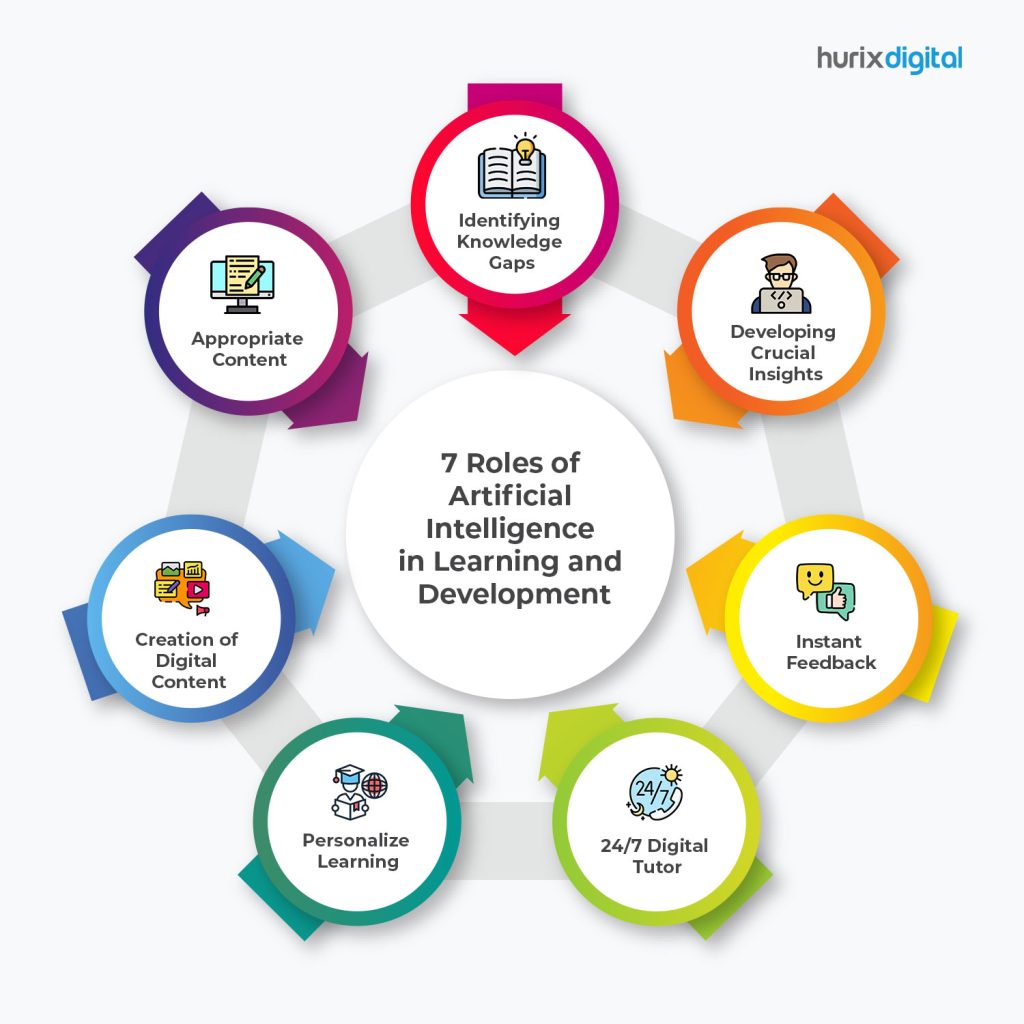
Intelligent tutoring systems and online learning platforms driven by AI are changing the face of education and training. These systems use AI algorithms to provide individualised learning plans, source suggestions, and comments that are specifically relevant to the user.
The use of AI in teaching and training may help people learn faster and better than ever before. The rate of learning may be adjusted, knowledge gaps can be discovered, and specific suggestions for development can be made on AI-powered platforms. This allows people to advance in their careers, get more knowledge, and work more effectively for themselves.
In sum, there are innumerable ways in which artificial intelligence may help us work smarter in our daily lives. Higher productivity and better allocation of time may be attained via the use of artificial intelligence to automate mundane jobs, analyse data, simplify communication, and enhance time management. Adopting tools and apps driven by AI helps people save time, get ahead in a competitive environment, and make better choices. Individuals may realise their full potential and perform at a higher level of efficiency with a knowledge of and proficiency with AI.

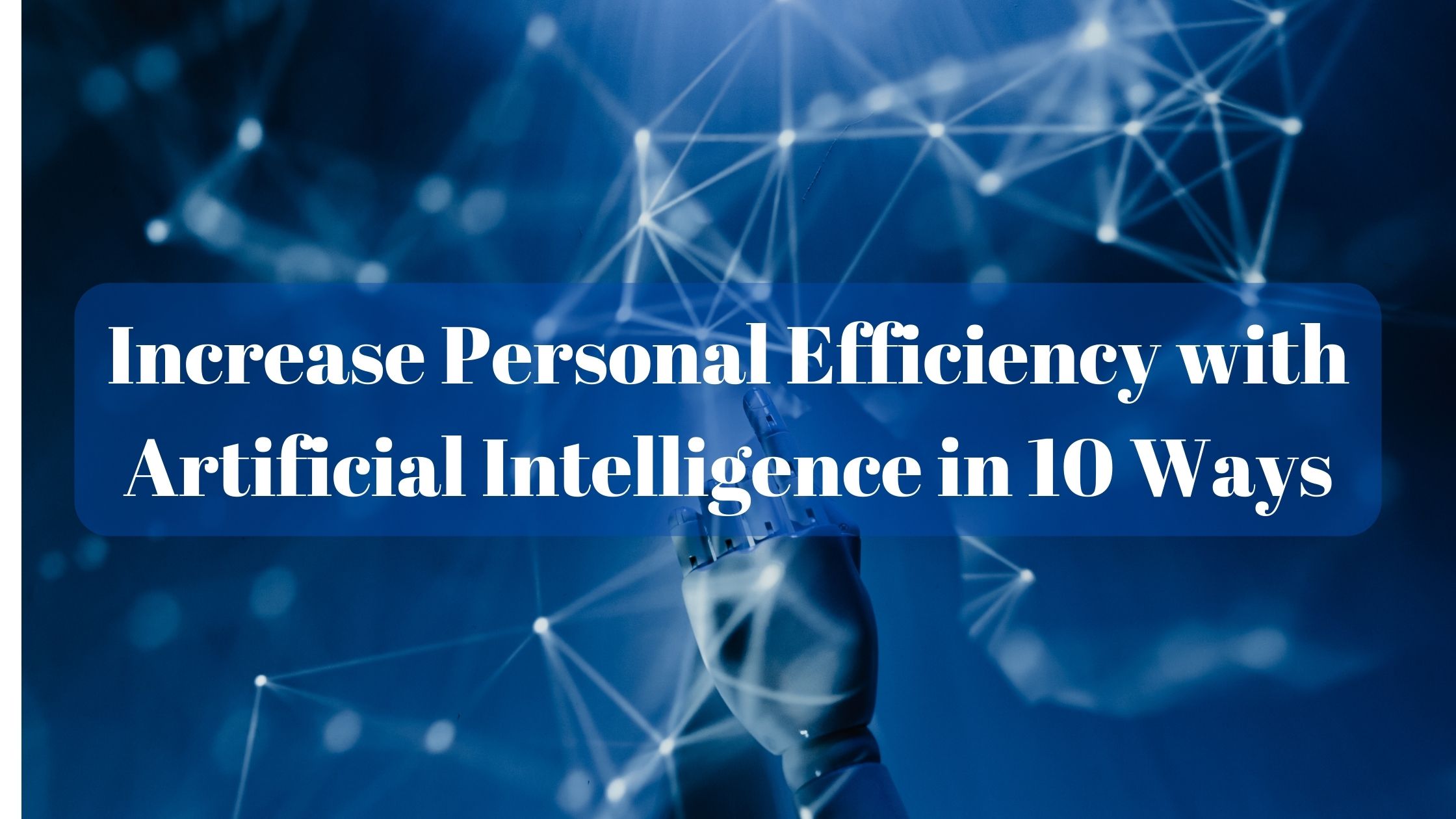
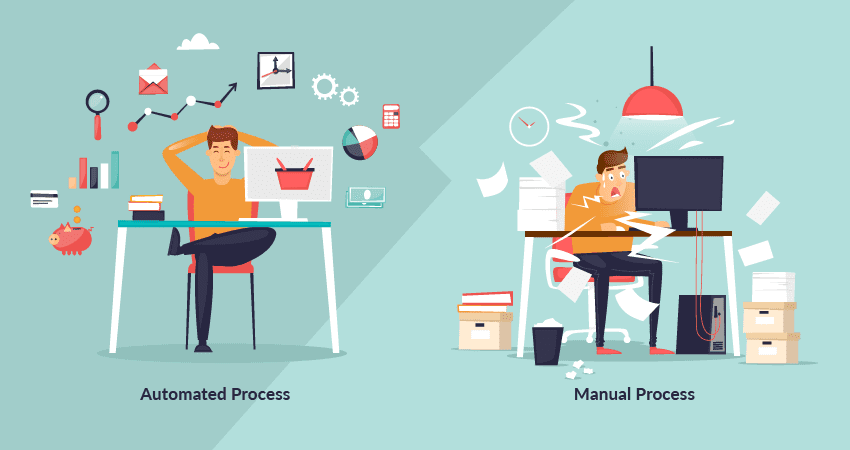
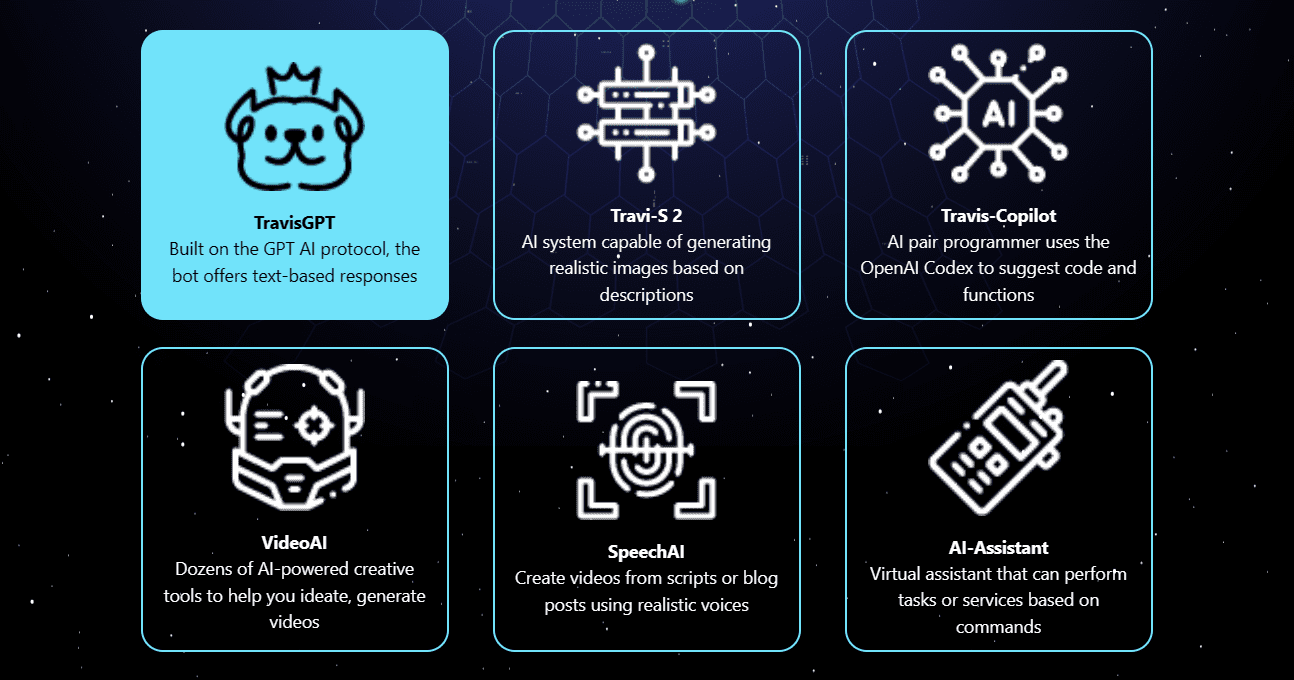
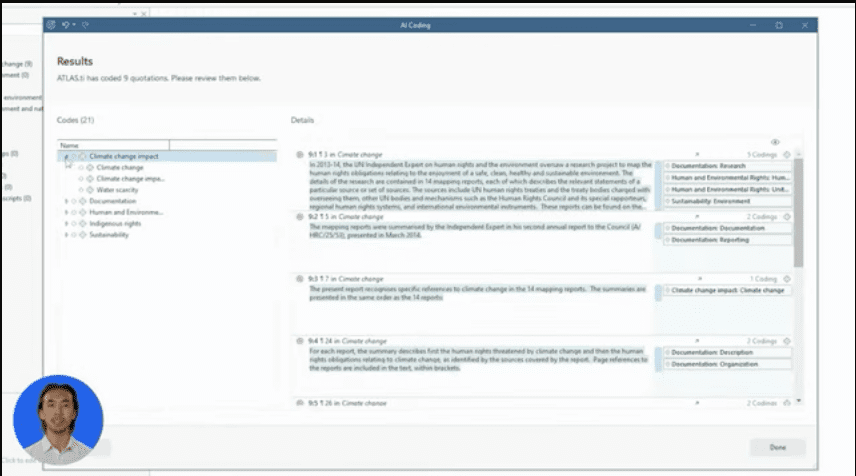
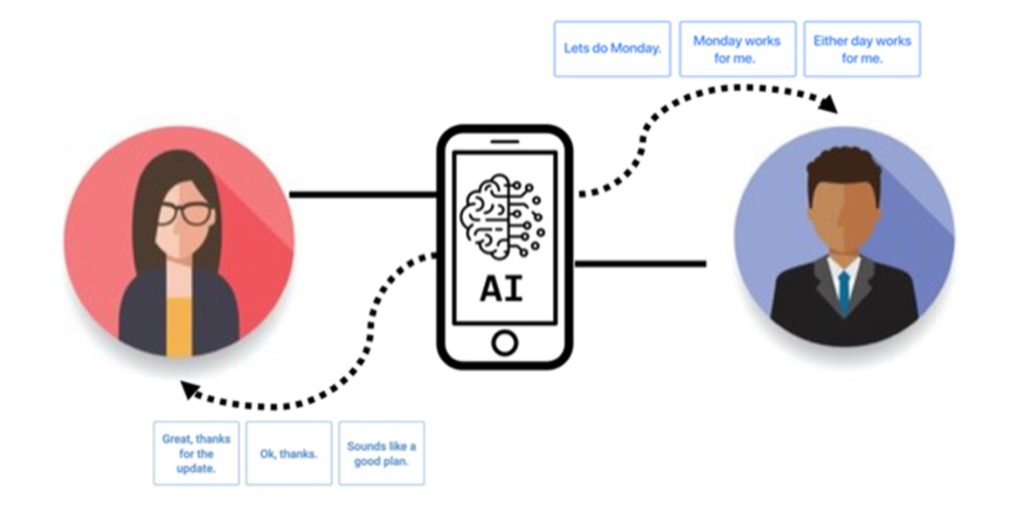
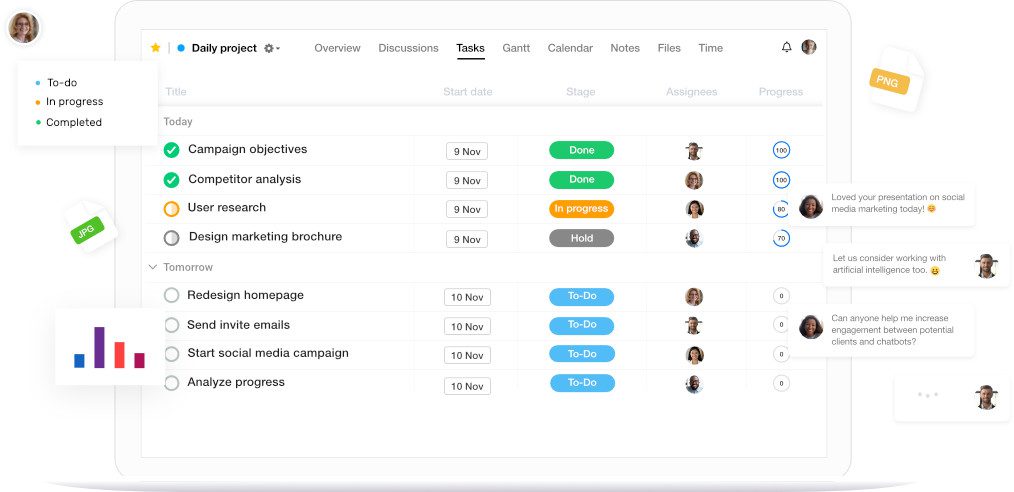
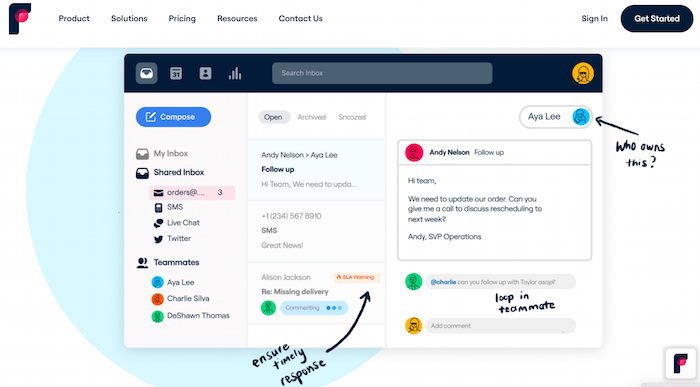
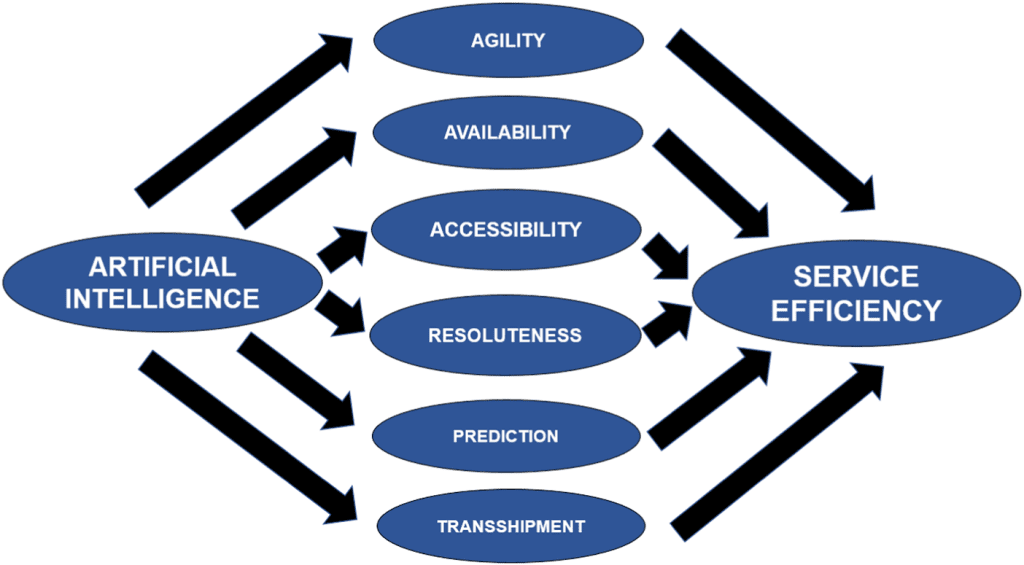
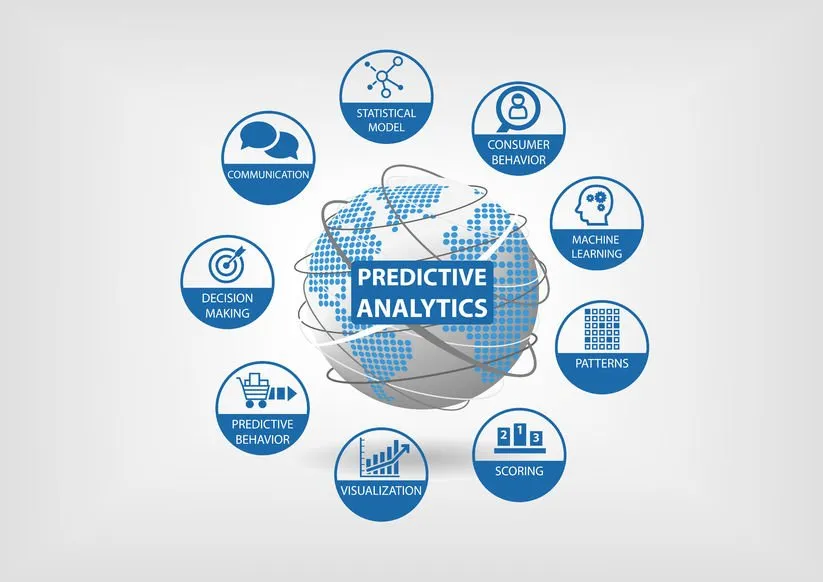

1 thought on “Increase Personal Efficiency with Artificial Intelligence in 10 Ways”